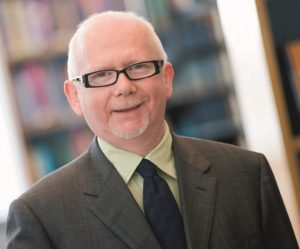 As someone who has long championed “user” or “patient” involvement in health focused organisations—whether as CEO at Arthritis Care or as vice president of EULAR (the European League Against Rheumatism) representing the patient group network in rheumatic and musculoskeletal diseases—I believe that the key to success is having clarity of purpose. If you are sure of “why” you want to enable patient participation at medical meetings, you are far more likely to get the “how” right.
As someone who has long championed “user” or “patient” involvement in health focused organisations—whether as CEO at Arthritis Care or as vice president of EULAR (the European League Against Rheumatism) representing the patient group network in rheumatic and musculoskeletal diseases—I believe that the key to success is having clarity of purpose. If you are sure of “why” you want to enable patient participation at medical meetings, you are far more likely to get the “how” right.
For example, the annual EULAR congress is a major global health event—almost 14 000 people attended the 2016 event in London and this is a typical number. While the majority of those attending are healthcare professionals, the number of patient representatives has increased in recent years. Moreover, feedback from lay delegates has been ever more positive as we learn how to support participation most effectively. We recognise at EULAR that quality of experience is even more important than “bums on seats,” as it is the former which creates sustainability of user involvement and helps to deliver a high quality product.
To achieve this we follow two guiding principles. Firstly, “Nothing about us without us”: patients have a right to participate in discussions about their care.
Secondly, “Ask, never assume.” By involving patient groups throughout the year, we ensure that the topics of most relevance to them are included on the programme. One stream of sessions is wholly organised by PARE (People with Arthritis and Rheumatism in Europe), which means that this part of the congress is not just user focused but actually user led. Several other sessions are also jointly developed, further illustrating the close integration across stakeholders.
We have found that translating principles into practice delivers quality.
Out of this dialogue has arisen practical means to support meaningful participation in the meeting. For example, by
• offering a subsidised registration fee for patients, many of whom are volunteers
• providing dedicated bursaries for PARE to enable oral presentations and posters, with the accommodation for award winners pre-checked for access
• offering free inclusion of a personal assistant where validated by certification
• optimising access at the meeting itself. For example, having a small number of wheelchairs available, as well as fold-up chairs for poster tours, and minimising the distance delegates need to walk
• being clear that all delegates have equal rights to attend sessions in the scientific part of the meeting
• ensuring that meeting rooms have accessible podiums for patient presenters and any health professionals with mobility problems
• having seats available at all functions, for example, the non-commercial exhibition area, networking events, etc
But the most important thing of all is communication. Ask, listen, and respond. Let people know in advance if there are possible barriers to participation. Ensure that onsite staff are trained to take access issues seriously. Patients know that the world is not perfect, but if they encounter reasonableness, their experience will be positive.
Most importantly of all, by involving patients meaningfully, your event will be the richer for mining a deep vein of expertise that would otherwise be inaccessible.
Neil Betteridge is international liaison officer, public affairs, for EULAR. Professionally, he runs Neil Betteridge Associates, a UK patient focused consultancy designed to support those wishing to embed patient focus into their services and activities. He is co-chair of the Chronic Pain Policy Coalition and was formerly CEO of Arthritis Care, during which time he was appointed by ministers both in the Dept of Health and Dept of Transport to act as a patient adviser to the government. You can find him on Twitter @Neil_Betteridge
Competing interests: I have read and understood BMJ policy on declaration of interests and declare the following interests:
Organisational financial interest:
I run my own consultancy, Neil Betteridge Associates. Over the past 36 months this company has worked with a range of clients from the voluntary, public, and private sectors, including the NHS and some pharmaceutical companies. These honoraria have been provided for strategic advice relating to patient engagement and other topics relating to policy and communications. Travel expenses have been paid at economy fare rate. Fees have not exceeded £10 000 for any one piece of work. Work of a similar nature is scheduled for the coming six months or so.
Non-financial interest:
– International liaison officer, public affairs, EULAR
– Co-chair, Chronic Pain Policy Coalition
– Patient and carer adviser, Professional Record Standards Body
– Patient and public voice, NHS England CRG on specialised pain services
Interests of related parties:
My spouse, Kate Betteridge, is co-director of Neil Betteridge Associates.
Related articles:
Editorial: Co-creating health—more than a dream
Analysis: “Nothing about us without us”—patient partnership in medical conferences
Blog: The evidence informed patient
Blog: Patient involvement in the European Respiratory Society Congress 2015-16
